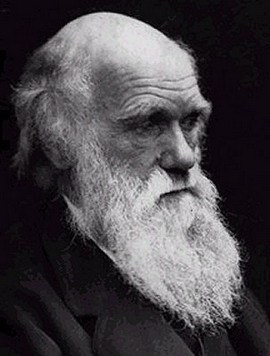24 Jun The Evolution of God Review: Robert Wright Interview
 In today’s online issue of Salon.com there is an interesting interview with Robert Wright, a well-known American journalist. Wright is the author of a new book “The Evolution of God,” which approaches its subject from the logical standpoint that, more often than not, we have created our Gods to match our own evolving self-image and needs. Wright refers to himself as a materialist in that he thinks that the answers to religious questions, including the evolution of God, lie in the facts on the ground.
In today’s online issue of Salon.com there is an interesting interview with Robert Wright, a well-known American journalist. Wright is the author of a new book “The Evolution of God,” which approaches its subject from the logical standpoint that, more often than not, we have created our Gods to match our own evolving self-image and needs. Wright refers to himself as a materialist in that he thinks that the answers to religious questions, including the evolution of God, lie in the facts on the ground.
All good so far. But a problem arises in how Wright discerns what is fact, and what he chooses to include and not include in forming his opinions.
For example, when it comes to Jesus and what kind of person he was, Wright argues that Jesus probably wasn’t the great prophet of peace and love that we all think:
The fact is, the Sermon on the Mount, which is a beautiful thing, does not appear in Mark, which was the first written gospel. And these views are not attributed to Jesus in the letters of Paul, which are the earliest post-crucifixion documents we have. You see Paul develop a doctrine of universal love, but he’s not, by and large, attributing this stuff to Jesus. So, too, with “love your enemies.” Paul says something like love your enemies, but he doesn’t say Jesus said it. It’s only in later gospels that this stuff gets attributed to Jesus. This will seem dispiriting to some people to hear that Jesus wasn’t the great guy we thought he was. But to me, it’s actually more inspiring to think that the doctrines of transnational, trans-ethnic love were products of a multinational, imperial platform.
Wright then goes on to tell the ugly story where Jesus initially refuses to heal the daughter of woman not from Israel, basically telling her that we don’t serve dogs here. Wright ultimately feels that Jesus was a typical messianic Jewish preacher who thought God was going to come down to Earth and straighten things out.
So, where to start? Well the doctrine of universal love was not left out of the Gospel of Mark. In Mark, Jesus says that whoever does the will of God is my brother and sister and mother (3:35); he criticizes John for trying to stop someone from doing the work of God simply because the guy wasn’t one of their followers (9:38-40); and he states that loving our neighbor as ourselves is the second greatest commandment (12:30). That Jesus was a prophet without borders is clearly demonstrated when he laments, “A prophet is not without honor, except in his own country, and among his own relations, and in his own home.” (6:4).
The anecdote where Jesus compares a mother and daughter to a dog appears as a distinct anomaly when viewed within the context of Mark’s entire Gospel, which is why its authenticity must be questioned. Considering the strong racist attitudes that Jesus had to overcome among his followers and how notoriously slow to learn they were (6:52, 8:17), it seems more reasonable to assume that this episode was made up.
As to the Kingdom of God, one would be hard pressed to say that Jesus thought this meant God was literally coming down to straightening things out here on Earth. If that were so, why do we find him using obscure parables and metaphors for the Kingdom of God, at one point likening it to a farmer who scatters seed but who doesn’t know how the seeds grows (Mark 4:26-27). Surely if God were coming down to sort us all out, he would know how he was going to do it.
While examining his “facts on the ground” on the evolution of God, Robert Wright ultimately stumbles for two reasons:
1) Wright does not always take into account the prejudices and weaknesses of the people who passed down the story of Jesus, and who by human nature would manipulate Jesus’s message to match their own self-image and needs, just as we’ve done (as Wright well notes) with our perceptions of God.
2) Wright undoubtedly held the personal belief that it is “more inspiring to think that the doctrines of transnational, trans-ethnic love were products of a multinational, imperial platform” prior to writing his book “The Evolution of God,” and consciously or unconsciously discerned “the facts” in a way to match that supposition.
